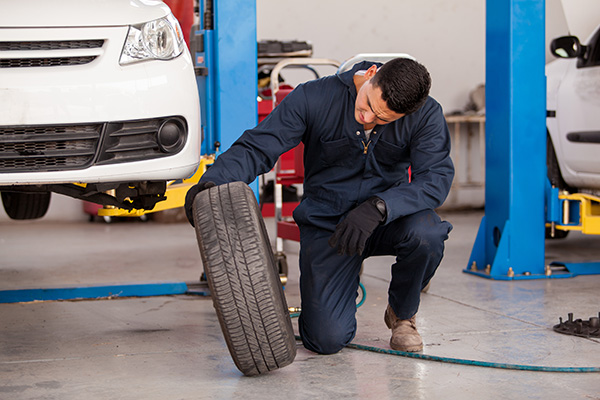
Tire rotations are one of those routine maintenance tasks that often get overlooked. While it may seem like an extra step that doesn’t make a big difference, skipping tire rotations can have serious consequences for your vehicle’s performance, safety, and your wallet. Understanding why rotations are important and what can happen if you ignore them helps ensure your tires last longer and keep you safe on the road.
Why Do Tires Need to Be Rotated
Each tire on your vehicle wears differently depending on its position. Front tires typically wear out faster because they handle most of the steering and carry more weight due to the engine and transmission. If your car is front-wheel drive, the front tires also handle acceleration and braking, adding even more stress.
By rotating your tires regularly, you help distribute wear more evenly across all four tires. This simple step can improve tire lifespan, enhance handling, and keep your ride smoother.
Uneven Tire Wear
One of the most obvious problems that comes from skipping tire rotations is uneven wear. Without regular rotations, front tires may wear down much more quickly than the rear ones. Over time, you might notice one set of tires with shallow tread while the others still have plenty of life left.
Uneven tread wear reduces your tires’ ability to grip the road properly, which can be especially dangerous in wet or slippery conditions.
Decreased Safety
Tires with uneven wear can compromise your vehicle’s handling and braking performance. Worn tires have less traction, which can increase stopping distances and reduce stability during turns or emergency maneuvers.
If your front tires wear down excessively, your vehicle may be more prone to hydroplaning in wet conditions, increasing your risk of losing control.
Reduced Ride Comfort
As tires wear unevenly, they can create vibrations or cause your vehicle to pull to one side. You might notice a rougher, noisier ride, which can make driving less comfortable and more stressful.
A smoother, more balanced ride is one of the often-overlooked benefits of regular tire rotations.
Shortened Tire Lifespan
When tires wear unevenly, you’ll need to replace them sooner than you would with proper maintenance. Replacing a full set of tires is a significant expense, and premature wear can make this cost come sooner than expected.
Rotating your tires at recommended intervals (every 5,000 to 7,500 miles) can help maximize their lifespan and get the most value out of your investment.
Strain on Suspension Components
Uneven tire wear doesn’t just affect the tires themselves; it can also put extra stress on your vehicle’s suspension and alignment. This added strain can lead to premature wear on components such as shocks, struts, and wheel bearings, resulting in increased repairs and higher maintenance costs over time.
Keeping your tires rotated helps reduce this strain and supports the health of other important systems in your vehicle.
Potential Warranty Issues
Some tire manufacturers require regular rotations as part of their warranty conditions. Failing to rotate your tires as recommended can void your warranty coverage, leaving you responsible for replacing prematurely worn-out tires without any assistance from the manufacturer.
The Importance of Regular Inspections
During a tire rotation, technicians also inspect your tires for damage, tread depth, and proper inflation. These routine checks can catch issues early, such as small punctures or sidewall damage, before they lead to flats or blowouts on the road.
Schedule Your Tire Rotation at Global Car Care in Wenatchee, WA
Tire rotations are a small investment in time and money that pay off in improved safety, longer tire life, and a smoother ride. At Global Car Care in Wenatchee, WA, our experienced team can rotate and inspect your tires to help you get the most out of them. Schedule your tire rotation today and keep your vehicle performing its best on every drive.